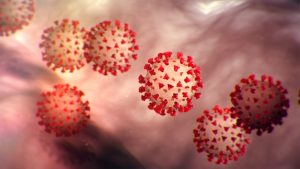Without doubt, times are tough. The seemingly inexorable spread of the COVID-19 pandemic has left many of us desperate for good news. And make no mistake, there is some out there. First, it’s heartening to see the  increased appreciation for those in the public health sector, and also for the unsung heroes of the war against COVID-19: grocery store personnel, garbage collectors, truckers, janitors, pharmacy clerks, postal workers, package deliverers, and others who we now realize are truly essential to a functioning modern society. Let me add one more group of people to that list: utility workers who keep our power on, our access to the internet active, and our clean water flowing. For example, to ensure a reliable water supply, some water treatment professionals are “sheltering in place” at a water treatment facility for the next three weeks. Others, right here in Wisconsin, are working twelve hour shifts in complete isolation to ensure that critical machinery remains operational.
increased appreciation for those in the public health sector, and also for the unsung heroes of the war against COVID-19: grocery store personnel, garbage collectors, truckers, janitors, pharmacy clerks, postal workers, package deliverers, and others who we now realize are truly essential to a functioning modern society. Let me add one more group of people to that list: utility workers who keep our power on, our access to the internet active, and our clean water flowing. For example, to ensure a reliable water supply, some water treatment professionals are “sheltering in place” at a water treatment facility for the next three weeks. Others, right here in Wisconsin, are working twelve hour shifts in complete isolation to ensure that critical machinery remains operational.
That leads me to my second bit of good news: according to the Environmental Protection Agency (EPA) and the Centers for Disease Control (CDC), our water supply is not threatened by COVID-19. Like most viruses, it is “particularly susceptible to disinfection,” a standard process at wastewater treatment plants. It seems appropriate to be grateful for this, given that Sunday was World Water Day. Imagine how terrible this crisis would become if we could not trust our drinking water.
Third, the sudden decline in industrial activity has resulted in remarkable improvements in environmental quality in some areas. Cleaner air, cleaner water, and lower carbon emissions have resulted. No one would have chosen this path to that goal, but the speed at which environmental conditions improved may provide important lessons for future efforts.
Two points of caution related to water and COVID-19. First, the crisis has led to a vastly increased use of disinfectant wipes for wiping down surfaces and cleaning hands, especially with toilet paper in high demand. Some of these wipes claim to be “flushable,” but many experts say that they nevertheless clog pumps and other treatment equipment. Unlike toilet paper, such wipes do not easily break down and should not be flushed down the toilet. Finally, even in the midst of this crisis, I would be remiss not to say that we can and should keep a vigilant eye on other contaminants in our water such as lead, pharmaceuticals, PFAS, bacteria, and nitrates.
All in all, we can feel confident that our tap water can continue to serve in that most important of roles in the current crisis—as the medium to WASH YOUR HANDS (thanks, Neil!). Be well, everyone.

